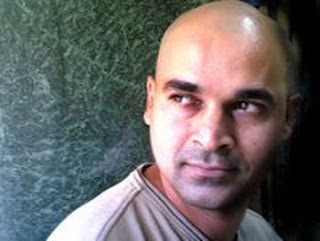

The first ever motion picture from the bag of Indian film mkaers was delivered way back in 1913. The first ever document of that 'masterpiece' is crafted way later in 2009.
Thanks to a man named Paresh Mokashi.
One may wonder who's the man? Why is the the man in discussion?
Well, the man has a great achievement down his sleeve.
The Harishchandrachi Factory.
This Marathi flick deals with the time when the country was yet to get its first cinema, The Harishchandra, directed by great Gobind Shaheb Phalke, alias Dadasaheb.
Set on the backdrop of the early British period, with the grievance spurring up in Maharshtra under the leadership of Bal Gangadhar Tilak, the film portrays a common man's journey towards making the first ever movie film, aka, the cinema.
The story goes on with the magician Phalke, inspired by the movie making process, deciding to make a full length film on Harishchandra.
In an era when people hardly had any ideas about motion films, when the film makers were not treated properly, Phalke had dared to dream big. So does this film.
There remains the unique selling point of Harishchandrachi Factory, the official Indian Entry to the Oscars in 2010.
But, it might not make it to the Oscars.
There are quite a few points responsible for such a comment.
Firstly, though it was stated that the film is set on the backdrop of 1911, the sets seemed to be quite contemporary. But, I guess in 1911, there weren't any BEST bus in Mumbai, neither cabs.
That's a dangerous flaw in terms of film making. (My little knowledge about film making says that it's a great flaw in terms of the film's reputation)
Secondly, the film deals with the subject in a soft, humorous way, which is the USP of it. But, others who are usually of the notion that 'India means Bollywood', may not like it. I completely agree that the film required such a comic relief to make pewople understand the boldness of the subject. But, will the comedy be appreciated by the jury members? Highly unlikely!
Third and most important point is that India doesn't have a great lobby. It has been witnessed that in events like Cannes, Oscars, countries need a strong 'outside' backing to bag the award. Which, unfortunately lacks in Indian cinema.
Fourthly, the child actors' were portrayed in same manner for the consecutive years. In 1911-13, kids doesn't grow up. Really strange!
Apart from this, the film is a fine document of the past, a perfect example of a 'silent revolution', narrated in a crisp tarse and pathy manner. Kudos to Mr.Mokashi. We would love to have more of such 'cats' out from your bag!
In a way, Harischandrachi Factory tells you a story of a 'silent revolution', in a soft way. It reminds me of an advertisement, Zor ka jhtka dhire se lagey. The similar adage could well fit the flick.
Harischandrachi Factory is a magnificient production from a country of Satyajit Ray, Shyam Benegal.
One can only wish that it gets a huge appreciation from its home audience, if not in Oscars!

No comments:
Post a Comment